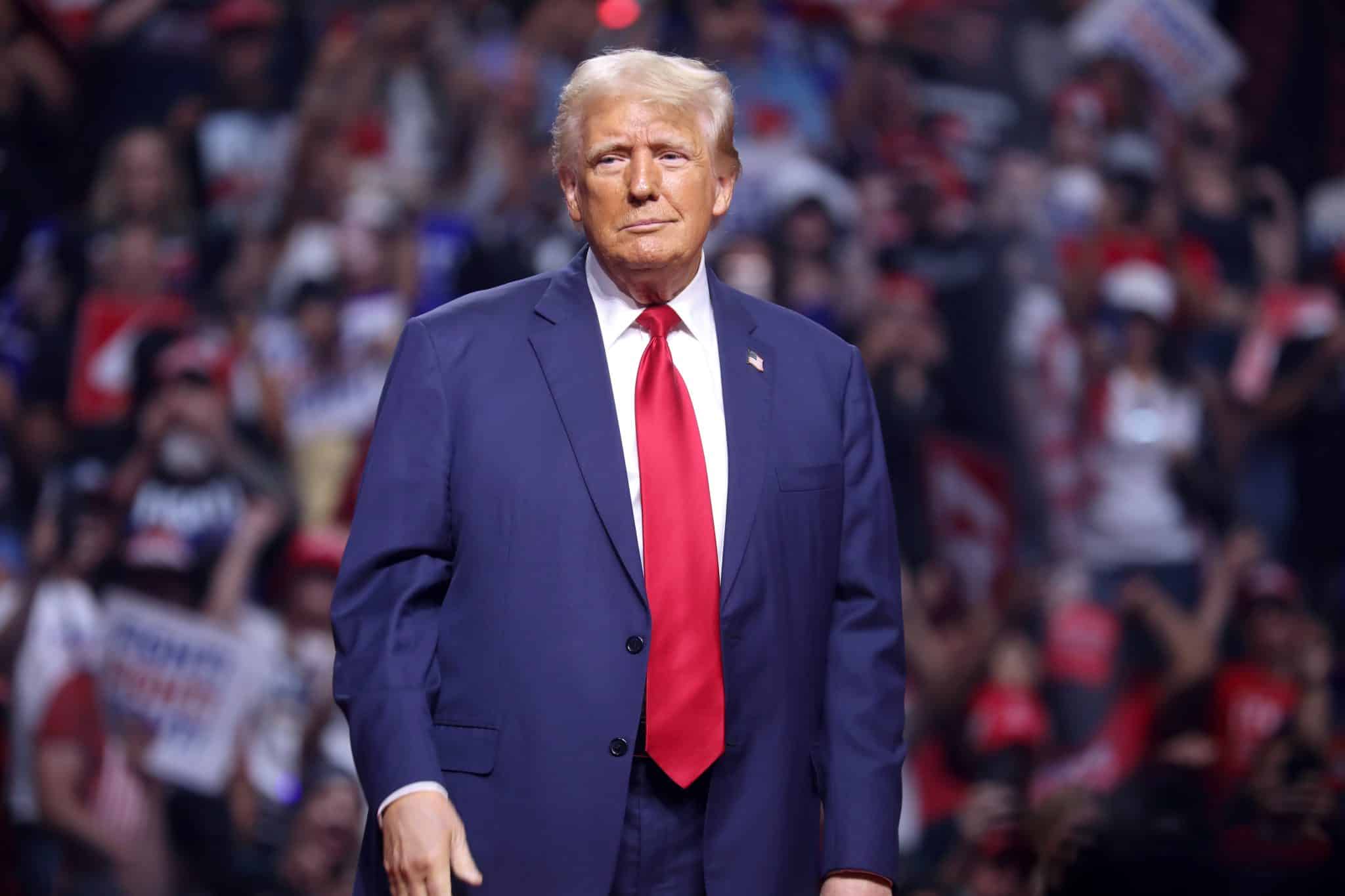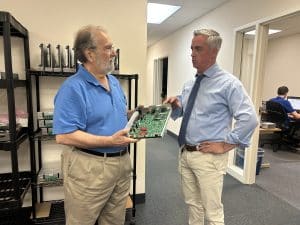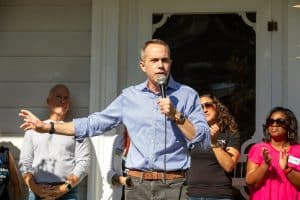One day after the election, many Democratic voters, pundits, and government officials were trying to make sense of how Donald Trump won the presidential election, especially in such big numbers. As of this moment, it looks like Trump won the popular vote, something he has never done in his two previous times running and is on pace to win more electoral college votes than he did in 2016.
Wednesday afternoon, journalists with The Lever, a nonpartisan investigative news outlet, hosted an online forum to discuss where the Democrats failed and what comes next. David Sirota, the editor-in-chief and founder of The Lever, said that Republicans did a better job than Democrats when it came to connecting with working class voters. “In 2020, Biden won households under 100 thousand dollars by 56 percent to 43 percent (over Trump). In 2024, Trump won households under 100 thousand dollars 49 percent to 48 percent.”
Sirota felt that this failure of connection played more of a factor than what some people claimed, which is that Trump supporters are just racist and sexist. “Yes, there’s racism and misogyny at the margins, but I go back to the 2016 election where 200 plus counties that had voted twice for Obama then voted for Trump. People tried to write it off as ‘oh well that’s just racism’, and that doesn’t make sense if Barack Obama had won those counties by two,” he said.
Sirota’s opinions match up with what some late polling data had said. According to a study done by The Center For Working-Class Politics in October on 962 voters in Pennsylvania, strong populist messages had support from 93.2 percent of Democrats, 53.7 percent of Independents, and 24.5 percent of Republicans, while progressive economic messages were supported by 91.6 percent of Democrats, 54.1 percent of Independents and 22.5 percent of Republicans.
The authors of the study, Jared Abbott, Fred DeVeaux, Dustin Guastella, Milan Loewer, and Isaac Rabbani, found that Harris underperformed both President Joe Biden and Trump when it came to working class voters. According to the authors, “Harris’s own Soft Populist and Moderate Economic messages and our hypothetical Strong Populist and Progressive Economic messages performed better than other Harris messages and better relative to an average of Trump messaging.” Unfortunately for Harris, it seems her failure to create a concrete economic message had doomed her chances of becoming president much sooner than Tuesday night.
The panelists on The Lever also talked about what Trump’s election means for things such as the Supreme Court, ethics in politics, environment, antitrust laws, and healthcare. On the topic of the Supreme Court, Sirota called out Justice Sonya Sotomayor for not stepping down due to her, “not being in great health.” Sotomayor has type one diabetes, which she has had since the age of seven, and described feeling “tired” at recent events, worrying some that she might be replaced by a Trump Supreme Court pick when she could have stepped down instead, which is what happened after Ruth Bader Ginsburg passed away in September of 2020.
“The leadership of the Democratic party still is a religion of worshiping so-called institutions, even as the institutions are being torched. Without being catastrophically dark about it, I think the Supreme Court is only going to get worse, to the point where the Overton window is going to shift so far that Brett Kavanaugh is going to be considered the liberal on the court,” said Sirota.
Read AP Data: ELECTION RESULTS PAGE
The panel’s feelings on the environment were not much better. “This fall, we’ve seen many tech companies walking back their green energy commitments,” said Louis Parshley. “As president, Trump is going to contribute to these slipping benchmarks at a really critical time. In the next five years, it is a super important window in which we have a chance to reduce emissions and limit future warming and all the catastrophes it will bring.” The host of the webinar, Jared Jacang Maher, also mentioned how Trump asked oil executives for one billion dollars of campaign finances in exchange for dismantling environmental regulations.
However, just like her economic policy, Parshley said the Harris messaging was not strong enough to get voters to turn out. “Even two massive hurricanes in October didn’t get the presidential candidates to center climate (in their agenda),” she said. “It was a total afterthought on the campaign trail. And that’s really stupid. Because climate is underneath a lot of the topics that they did hotly debate, like immigration.”
At the end of the webinar, questions were asked about what journalism would look like at The Lever, but it applies to all independent news outlets. So did the answer. “Journalism has been in a precarious state as an industry for a while,” said Helen Santoro. “But I personally think our work is vital more than ever with the outcome of this election. And I don’t see anyone on this team stopping the work or altering the work anytime soon.”
“I think I am a little more paranoid than my colleagues,” said Lucy Dean Stockton. “I do worry about censorship and serious legal issues that we may face. But I also think that right now it’s more important than ever to invest in an independent media ecosystem.”
After talking about Washington Post owner Jeff Bezos blocking the editorial board’s endorsement of Kamala Harris as an example of corporations controlling the media, Dean Stockton said, “We have a chance right now to change the media ecosystem and that independent news is going to be a major part of keeping the democratic process alive.”






